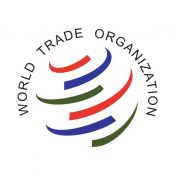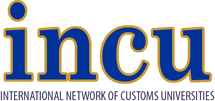“Through academic research and debate the INCU strives to help the people who make big decisions in Customs to formulate strategies and policies. This is important work and it has never been more relevant.”
H.E. Ambassador Roberto Azevedo, Director-General, WTO
Recognising the important role academic research plays in international trade facilitation and that members of the INCU have been actively involved for many years in research on various aspects of trade facilitation, the INCU has been supporting the work of the WTO. This includes its active involvement in the most significant work impacting on the customs profession that has been undertaken in recent times, that is, the agreement reached by WTO members on the global trade facilitation agenda – the WTO Trade Facilitation Agreement, to which INCU has been an active contributor since 2007.

As early as 2007, INCU President Professor David Widdowson was working closely with the WTO to develop the first version of WTO Trade Facilitation Self-Assessment Guide. This guide was used by approximately 100 developing and least developed countries to assess their trade facilitation needs and priorities which enable them to participate more effectively in the WTO Trade Facilitation negotiations. In fact, according to the WTO Director-General, Roberto Azevedo, the Guidelines were central to the whole process.
Some six months after the conclusion of the Bali Agreement the INCU held the Inaugural INCU Global Conference in May 2014 with the theme “Trade Facilitation Post-Bali: Putting Policy into Practice”, which was specifically dedicated to trade facilitation and customs in the context of the WTO Bali Agreement. The conference was organised in cooperation with the State Customs Committee of the Republic of Azerbaijan and was held in Baku, Azerbaijan. It was the first Customs conference that specifically addressed the Bali Agreement since it’s adopted in December 2013 and the first Customs conference that ever featured Nobel Prize Laureates.
In conference’s opening remarks H.E. Ambassador Roberto Azevêdo, Director-General of the WTO, publicly recognised the significance of the INCU’s role in promoting the trade facilitation agenda and, in response, the INCU has undertaken to continue to support the work of the WTO.
A number of papers and speeches delivered at the conference specifically discussed aspects of trade and customs in the context of the WTO Bali Agreement and the following key propositions were presented at the conference:
- There is a need for a paradigm shift that views the role of “border management” agencies as one of Trade Flow Management.
- Trade facilitation and supply chain security are not mutually exclusive variables but involve the same processes.
- Meta data and targeting are necessary to risk management and traffic segmentation.
- Fragmented border management is an artifact of history that globalisation requires revisiting.
- There is a need to move from bilateral border relations to binational relationships transnationally.
The INCU Baku Resolution on the future direction of the organisation adopted on the last day of the conference (Baku, 23 May 2014) determined that INCU would continue to support the work of the WTO Committee on Trade Facilitation through a range of initiatives, including empirical studies to help inform decision-making and address the above key propositions that were made at the Inaugural INCU Global Conference.
